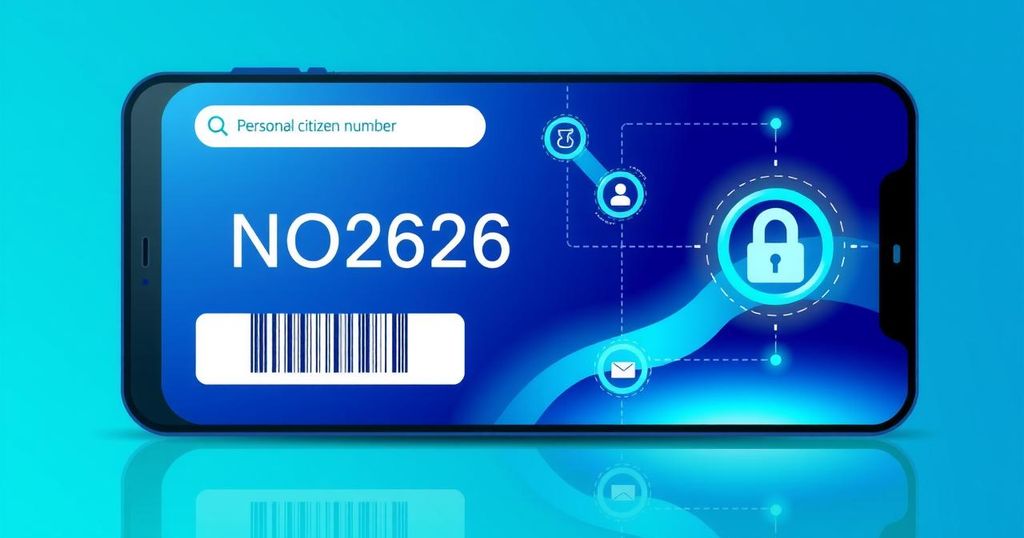A Visa study reveals that one-third of Swedes are ready to use fingerprint access for various services, with 54% open to unique digital identities. The growing trust in biometrics over passwords is evident, alongside concerns about privacy and data protection that need addressing. Swedish providers are prepared to capitalize on this trend, with advancements in biometric payment solutions and collaborations with technology partners.
In Sweden, the demand for biometric access, particularly fingerprint technology, is experiencing a surge according to a recent Visa study highlighting changing consumer attitudes. The study reveals that approximately 33% of Swedes are ready to use their fingerprints for device access, while over half are inclined toward adopting a unique digital identity. Notably, 41% of respondents foresee a beneficial societal impact stemming from such technologies. The survey, which included input from 8,000 individuals across various countries including Sweden, France, and Germany, indicated that Swedish consumers predominantly trust biometrics over traditional passwords, with nearly half of respondents indicating a preference for biometric solutions. Visa’s Sweden head, Fredrik Lindquist, stated, “Sweden is on the threshold of a revolution in digital identity,” emphasizing a shift towards viewing biometrics as the cornerstone of secure identifications. However, the adoption faces challenges relating to privacy and trust, especially concerning data sharing and protection. Education on the reliability of biometric systems, alongside visible applications in airports and hotels, will be essential for normalizing this technology and alleviating public concerns. From a security standpoint, Visa predicts that robust biometric solutions could potentially reduce fraud losses by approximately 483 million euros annually. Lindquist further asserted that the transformative potential of biometric identification hinges on establishing trust among users, ultimately fostering a secure digital ecosystem for individuals and businesses. As consumer interest in biometric solutions grows, domestic Swedish providers are poised to meet the escalating demand. Companies such as Zwipe and Fingerprint Cards are innovating in biometric payment cards and solutions, aligning with global trends reported by Idemia that show increased adoption of biometric payment systems. Recent collaborations include Fingerprint Cards working with Infineon Technologies to enhance payment and access control systems. Moreover, partnerships like that of Precise Biometrics and Infineon Technologies aim to integrate advanced fingerprint algorithms with Infineon’s sensor technologies, targeting various industries, predominantly automotive. This convergence of biometric solutions and automotive applications signifies a growing recognition of the utility of fingerprint technology within evolving markets.
The rise in fingerprint access solutions reflects a broader trend in digital identity management across the globe. Consumers are increasingly accepting biometrics as a secure means for identification and authentication, with Sweden leading this transformation. High consumer confidence levels regarding biometrics are supported by studies indicating a shift in preferences from traditional password systems to biometric data, particularly among younger and tech-savvy demographics. Companies within Sweden have recognized this shift and are innovating rapidly to develop solutions that leverage biometrics for secure transactions and access control. Additionally, there is a notable emphasis on privacy and data protection, essential building blocks for fostering consumer trust in biometric systems. Coupled with ongoing advancements in technology and tight industry collaborations, the landscape for biometric applications continues to expand significantly in various sectors such as finance and automotive.
The growing acceptance of biometric technology, particularly fingerprint access, reflects a significant shift in consumer attitudes in Sweden, underpinned by rising confidence in these solutions over traditional methods. With domestic providers actively developing innovative biometric solutions and addressing consumer privacy concerns, the trajectory for digital identity and biometric technology promises to reshape operational paradigms across sectors. Collaborations between hardware suppliers and biometric specialists will likely accelerate the introduction of integrated solutions that can offer enhanced security and convenience, indicating a bright outlook for digital transformation in Sweden and beyond.
Original Source: www.biometricupdate.com





